
Find Help
More Items From Ergsy search
-

Are there any penalties for not complying with a product recall?
Relevance: 100%
-

What is a Product Recall in the UK?
Relevance: 83%
-

Can product recalls be reversed?
Relevance: 74%
-

What are common reasons for product recalls?
Relevance: 73%
-

Can recalled products be resold?
Relevance: 69%
-
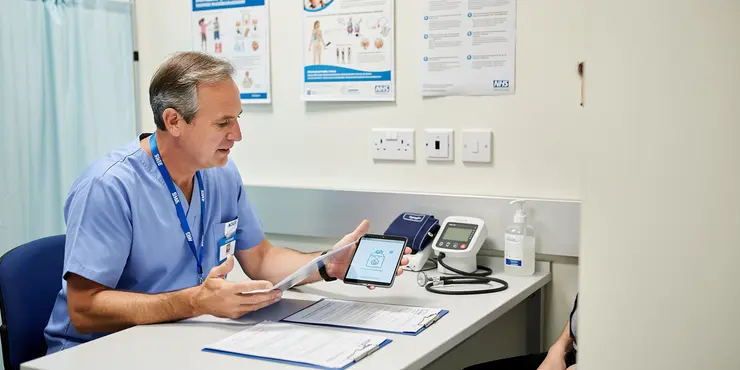
How are product recalls managed in the UK?
Relevance: 68%
-

Can a product recall be voluntary?
Relevance: 65%
-

Who can initiate a product recall in the UK?
Relevance: 64%
-

What is the role of the Office for Product Safety and Standards in a recall?
Relevance: 61%
-
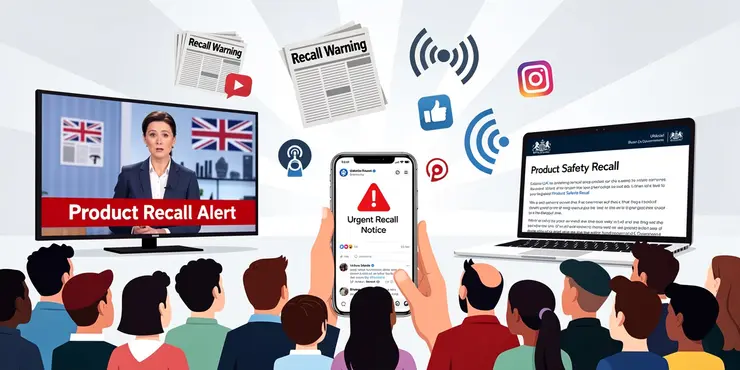
How are consumers informed about a product recall?
Relevance: 60%
-

What are the potential consequences for a company that fails to recall a dangerous product?
Relevance: 59%
-

What role do consumers play in the recall process?
Relevance: 50%
-

How often do product recalls occur?
Relevance: 46%
-

What types of products can be recalled?
Relevance: 46%
-

What should I do if a product I own is recalled?
Relevance: 46%
-
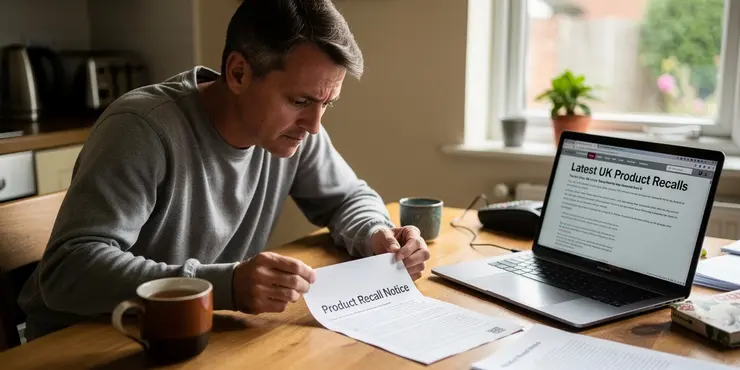
How long is a product recall usually valid?
Relevance: 44%
-

Which regulatory authority oversees product recalls in the UK?
Relevance: 44%
-

What is the difference between a product recall and a safety notice?
Relevance: 42%
-

What should businesses do if they discover a product defect?
Relevance: 39%
-

What is a product recall?
Relevance: 38%
-

Is the production of ketamine regulated?
Relevance: 36%
-
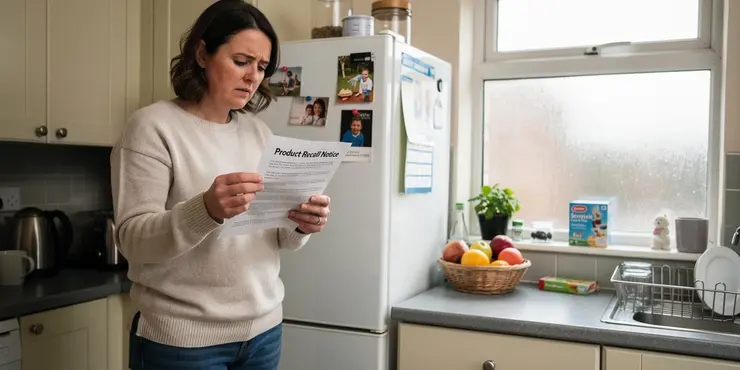
How does the recall process affect consumers?
Relevance: 34%
-

Are there penalties for not maintaining water infrastructure?
Relevance: 33%
-

Are there penalties for water companies besides issuing refunds?
Relevance: 32%
-

Does the penalty point system apply to all businesses?
Relevance: 31%
-
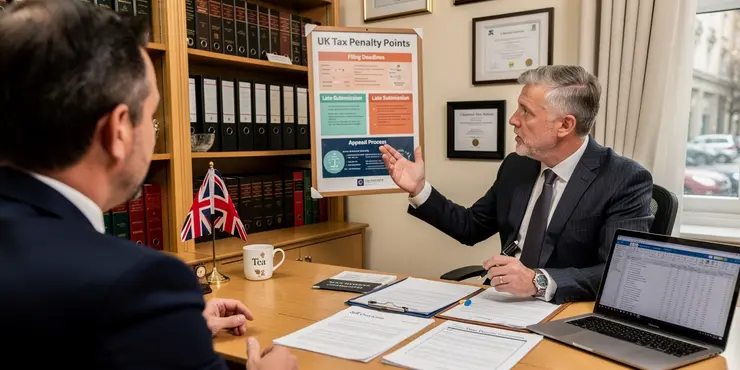
Are penalty points cumulative across different types of taxes?
Relevance: 31%
-

How can I avoid penalty points?
Relevance: 30%
-

What penalties are imposed on retailers who violate the age restrictions?
Relevance: 29%
-

What penalties are common for drug offences?
Relevance: 29%
-

What are the consequences for banks not complying with transparency standards?
Relevance: 27%
-

How are penalty points reset?
Relevance: 26%
-

Can penalty points be appealed?
Relevance: 26%
-

Who does the HMRC penalty point system apply to?
Relevance: 26%
-

What are the penalties for breaking a hosepipe ban?
Relevance: 26%
-

What is the penalty for violating a hosepipe ban from Thames Water?
Relevance: 26%
-

What is the financial penalty if I exceed the threshold?
Relevance: 25%
-

Are there any penalties for sending unsolicited messages?
Relevance: 25%
-
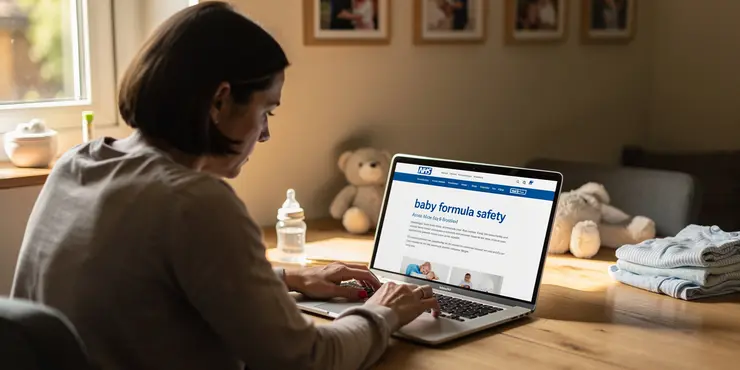
Where can I find information on contaminated baby formula?
Relevance: 25%
-
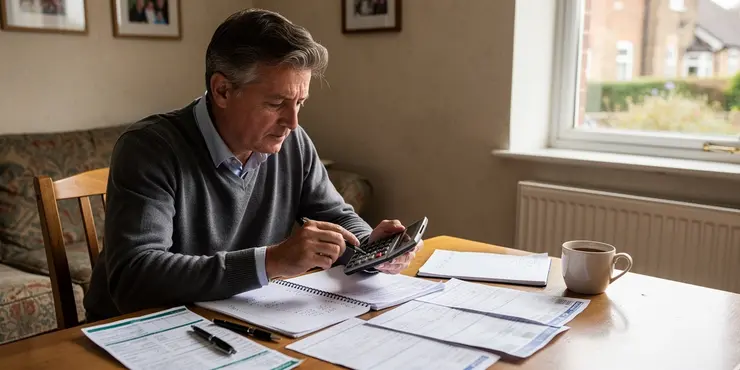
Will penalty points affect my credit score?
Relevance: 25%
-

What is the penalty for supplying ketamine in the UK?
Relevance: 25%
Understanding Product Recalls in the UK
Product recalls are critical actions undertaken by manufacturers or regulatory bodies to protect consumers from potentially harmful or defective products. When a product is recalled, it means that there is a risk associated with its continued use, and the manufacturer is responsible for taking the necessary steps to address these issues. In the UK, the safety of consumer products is paramount, and there are clear regulations and penalties for non-compliance with product recalls.
Legal Framework for Product Recalls
In the UK, product safety is governed by laws such as the Consumer Protection Act 1987 and the General Product Safety Regulations 2005. These laws require that all products placed on the market must be safe for use. When a product is found to be unsafe, a recall may be initiated to prevent harm to consumers. Failure to comply with these regulations can lead to significant penalties for the businesses involved.
Penalties for Non-Compliance with Product Recalls
Non-compliance with a product recall can have serious legal and financial repercussions for businesses. Companies that fail to take appropriate action during a recall process may face fines and legal actions. The level of penalties depends on the severity of the breach and its impact on consumer safety.
Under the General Product Safety Regulations 2005, businesses can face fines of up to £20,000 per offence if they do not comply with safety regulations, including recalls. In some cases, non-compliance can lead to imprisonment of up to 12 months for responsible individuals within the business. Additionally, the company may be ordered to pay compensation or provide replacements for the defective products.
Reputational Damage and Financial Implications
Apart from legal penalties, non-compliance with product recalls can result in significant reputational damage. Consumers may lose trust in a brand that fails to address safety concerns promptly. This loss of consumer confidence can lead to decreased sales and long-term damage to the brand's image.
The financial implications of non-compliance extend beyond fines. Companies may face increased insurance premiums and a higher cost of capital as lenders view them as riskier. The costs associated with rectifying the recall issues, including replacement, reimbursement, and repairing the consumer trust, can be substantial.
Conclusion
In the UK, compliance with product recalls is not only a legal obligation but also a responsibility towards consumer safety. Businesses must actively engage in recall processes to mitigate the risks associated with defective products. Failure to comply can lead to severe penalties, both legal and financial, and can irreparably harm a company's reputation. Ensuring adherence to product safety regulations is crucial for maintaining trust and safeguarding consumer welfare.
Understanding Product Recalls in the UK
Sometimes, companies need to take back products because they might be dangerous or not work right. This is called a "product recall." When this happens, it means there's a risk if people keep using the product. The company has to fix the problem. In the UK, keeping people safe from faulty products is very important. There are rules to follow to make sure products are safe, and if companies don't follow these rules, they can get in trouble.
Legal Framework for Product Recalls
In the UK, there are laws that make sure products are safe, like the Consumer Protection Act and the General Product Safety Regulations. If a product is unsafe, it must be taken back or fixed. If a company doesn't follow these laws, it can get into big trouble, like having to pay a lot of money.
Penalties for Non-Compliance with Product Recalls
If a company doesn't do a recall the right way, it can face serious problems. They might have to pay a lot of money or even go to court. How much trouble they get in depends on how bad the problem is and how it affected people. Companies can be fined up to £20,000 each time they break the safety law, like not doing a recall. In some cases, people in charge can go to jail for up to 12 months. Companies might also have to give money back or replace the bad products.
Reputational Damage and Financial Implications
Besides legal trouble, not doing a recall properly can hurt a company's reputation. People might stop trusting the company if it can't keep them safe. This might mean that fewer people buy their products. The company might have to pay more for insurance and might find it harder to borrow money. Fixing these issues, like giving people new products or their money back, can cost a lot.
Conclusion
In the UK, following the rules for recalls is important for keeping people safe. Companies must make sure they fix problems with their products. If they don't, they can face big fines and damage to their reputation. It’s very important for companies to follow these safety rules to keep the trust of their customers and protect them.
Frequently Asked Questions
What are the consequences of not complying with a product recall?
Failure to comply with a product recall can result in legal penalties, fines, and damage to a company's reputation.
Can a company be fined for not complying with a recall?
Yes, companies can face significant fines for failing to comply with a product recall.
Is it illegal to ignore a product recall?
Yes, ignoring a product recall can be illegal and result in enforcement actions by regulatory authorities.
What regulatory bodies enforce product recall compliance?
Regulatory bodies such as the Consumer Product Safety Commission (CPSC) and the Food and Drug Administration (FDA) enforce product recall compliance in the United States.
How do penalties for non-compliance with a recall vary?
Penalties can vary based on the severity of the issue, the potential harm to consumers, and the regulatory authority involved.
Can legal action be taken against a company for not recalling a defective product?
Yes, companies can face lawsuits from consumers or regulatory actions if they fail to recall defective products.
Are there any civil liabilities for not complying with a recall?
Yes, companies can face civil liabilities, including lawsuits from consumers who suffered harm from the defective product.
Do product recalls affect a company's reputation?
Yes, failure to effectively manage a product recall can severely damage a company's reputation and consumer trust.
Can executives face personal penalties for non-compliance with recalls?
In some cases, executives may face personal penalties, especially if they knowingly ignored recall requirements.
What financial impact can occur from not complying with a recall?
The financial impact includes potential fines, legal costs, and loss of sales due to reputational damage.
What happens if a company refuses to issue a recall?
Refusal to issue a recall can lead to mandatory recalls by regulatory agencies and additional penalties.
Is consumer safety a factor in recall compliance penalties?
Yes, consumer safety is a primary factor, and the risk posed to consumers can influence the severity of penalties.
Are there any reporting requirements for product recalls?
Yes, companies are typically required to report recalls to relevant regulatory bodies promptly.
What role does the CPSC play in product recalls?
The CPSC oversees recalls of consumer products and enforces compliance in the United States.
Can non-compliance with a recall result in a recall being forced by authorities?
Yes, authorities can enforce a mandatory recall if a company fails to initiate a voluntary recall for dangerous products.
How can a company mitigate penalties from not complying with a recall?
Proactively addressing the recall, cooperating with authorities, and promptly correcting the issue can mitigate penalties.
What are some examples of penalties for non-compliance with recalls?
Penalties can include financial fines, mandatory recalls, legal injunctions, and compensatory damages.
Can recalling a product late result in penalties?
Yes, delays in issuing a recall can result in penalties, especially if consumer harm occurs during the delay.
What are the ethical considerations in complying with a recall?
Ethically, companies are responsible for ensuring consumer safety, which involves promptly addressing and complying with recalls.
What are the long-term effects of non-compliance with a recall for a business?
Long-term effects can include lost customer trust, reduced market share, and ongoing legal challenges.
What happens if you don't follow a product recall?
If you don't send back a product during a recall, some things can happen:
- The product might be dangerous and could hurt someone.
- You might not get your money back or a new product.
- The company could have problems, like fines.
If you need help, you can:
- Ask a friend or family member to explain the recall.
- Speak to the store where you got the product.
- Use a computer tool to read the information out loud.
If a company does not follow the rules to take back a product, it can get into big trouble. It might have to pay money as a punishment, get into legal problems, and people might not trust the company anymore.
Can a company get in trouble for not doing a recall?
If a company does not fix or take back products that are broken or unsafe, they might have to pay money as a fine. It's like a punishment for not making sure things are safe for people.
Supportive tools or techniques: If you find reading hard, ask someone to read things with you. You can also use audiobooks or apps that read text out loud to help understand better.
Yes, companies can get big fines if they don't follow the rules when they need to take back a product.
Do I break the law if I ignore a product recall?
A product recall means there's a problem with something you bought. The company wants it back because it's not safe.
If you ignore a product recall, you might not break the law, but it's important to follow the recall to stay safe.
If you find reading hard, ask someone you trust to help you understand product recalls.
If a product is unsafe, the company might ask people to return it. This is called a product recall. If you ignore a product recall, it can be against the law. This means you might get in trouble with the people who make the rules.
Who makes sure products are safe and taken back if needed?
Groups like the Consumer Product Safety Commission (CPSC) and the Food and Drug Administration (FDA) make sure that products are safe in the United States. They help with product recalls.
You might find it helpful to use pictures or videos to learn more about these groups and what they do. You can also ask someone you trust to explain more if you need help.
What happens if rules about a product recall are broken?
Penalties are like punishments. They can be different depending on how serious the problem is, how much it might hurt people, and who is in charge of the rules.
Can you take a company to court if they do not fix a broken product?
Sometimes companies make things that are broken or not safe. This is called a "defective product." If a company knows something they made is broken and they do not take it back and fix it, you might be able to go to court. This means asking a judge to make the company fix the problem.
To help understand better, you can:
- Ask someone you trust to explain more.
- Use apps or websites that read texts out loud.
- Make a simple list of what you want to know and ask questions one at a time.
Yes, companies can get into trouble if they do not take back broken products. People who bought the products or rules-makers can complain.
Can you get in trouble if you don't follow a product recall?
If a company asks you to send back a product because it is not safe, you should do it. This is called a recall. If you don’t, you might be responsible if someone gets hurt.
Support: If you find it hard to read letters or legal words, ask someone you trust to read them with you. You can also use tools like text-to-speech apps that read aloud to you.
Yes, companies can get in trouble if their products hurt people. People can take the company to court if their products are not safe.
Do product recalls affect what people think about a company?
When a company takes back a product because something is wrong, it is called a product recall.
This can change how people feel about the company.
Here are some ways this can happen:
- If a product is not safe, people might not trust the company anymore.
- The company may have to work hard to make people feel happy and safe again.
- Sometimes, the company can say sorry and fix the problem, which can help.
Using pictures or videos can help make this information clearer.
Yes, not handling a product recall well can hurt a company's reputation and make customers lose trust.
Can bosses get in trouble if they don't follow recall rules?
When something needs to be taken back because it is not safe, bosses have to make sure it happens. If they don't, they might get in trouble. This means they can face penalties, which are like punishments. These punishments can be things like paying money or other personal consequences.
For people who find reading hard, it might help to:
- Read with someone who can explain things.
- Use pictures to understand better.
- Use a ruler or finger to keep your place when reading.
Sometimes, bosses can get in trouble if they do not follow the rules. This happens when they know about the rules and choose not to follow them.
Some tools can help make reading easier. Try using audiobooks or reading apps. Ask someone to read with you if you find it hard.
What can happen with money if you do not follow a recall?
The money problems can include paying fines, lawyer fees, and losing money if people stop buying from you because they don’t trust you anymore.
What if a company won’t take back bad products?
If a company does not choose to take back a product, then the government might make them do it. The company could also get into trouble and have to pay fines.
Are there punishments if a product is not safe for consumers?
Sometimes, things we buy can be unsafe. When this happens, companies may have to take them back. If they don't, they might get in trouble.
Here are some helpful tips:
- Use pictures to help understand.
- Ask someone to read with you.
- Look for bullet points for important information.
Yes, keeping people safe is very important. If something is dangerous for people to use, the punishment can be more serious.
Do we need to tell anyone if a product is taken back because it is not safe?
Yes, companies usually have to tell the right offices when they take products back because they are not safe. They need to do this quickly.
What does the CPSC do when products are unsafe?
The CPSC is a group that looks after products people use. They make sure products are safe in the United States.
Can the authorities make a recall happen if people do not follow it?
Yes, if a company does not take back unsafe products on its own, the authorities can make them do it.
How can a company reduce punishments for not following a recall?
A company might have to fix problems with its products. This is called a recall. If they don’t do it, they can get into trouble.
Tips to help:
- Use checklists to make sure you follow all the steps of the recall.
- Talk to a lawyer who knows about recalls for advice.
- Keep good records of all the actions you take.
Tools that can help:
- Software to track actions and keep records.
- Videos to teach your team about recalls.
- Support groups from other companies who have done it before.
These steps can help keep the company out of trouble.
Fixing problems quickly can help you avoid getting into trouble. Work with the people in charge and fix the issue as soon as you can.
What happens if a company does not follow a recall?
If a company does not do what they should during a recall, they can get in trouble.
Here are some things that can happen:
- The company might have to pay a fine. This is when they give money as a punishment.
- The government might take back the company’s permission to sell certain products.
- The company might have to fix their products.
- The company might need to tell people what went wrong.
These actions make sure companies do things the right way. You can use pictures or talk to someone who can help you understand more.
If rules are broken, these things can happen: paying money as a fine, having to bring all the products back, a court order to stop doing something, and paying people who were hurt.
Can you get in trouble for taking back a product too late?
Yes, waiting too long to call back a product can get a company in trouble, especially if someone gets hurt.
What are the right and wrong things to think about when sending back a product?
Companies must keep customers safe. This means they should fix problems and follow rules if there is a recall.
What happens if a business ignores a recall for a long time?
Here is what can happen if a business does not follow a recall:
- The business might lose money.
- People might not trust the business anymore.
- The business could get in trouble with the law.
Businesses should act quickly when there is a recall. It can help to:
- Use a checklist to stay organized.
- Keep talking with customers to let them know what is happening.
- Use reminders to make sure they do everything they need to do.
When something bad happens for a long time, it can cause problems. People might not trust you anymore. You might lose some of your customers. You could also have legal problems that don't go away.
Here are some ways to help understand this:
- Use simple words when you explain things.
- Ask someone to help you read if you need it.
- Take your time to read slowly.
Useful Links
This website offers general information and is not a substitute for professional advice.
Always seek guidance from qualified professionals.
If you have any medical concerns or need urgent help, contact a healthcare professional or emergency services immediately.
Some of this content was generated with AI assistance. We’ve done our best to keep it accurate, helpful, and human-friendly.
- Ergsy carfully checks the information in the videos we provide here.
- Videos shown by Youtube after a video has completed, have NOT been reviewed by ERGSY.
- To view, click the arrow in centre of video.
- Most of the videos you find here will have subtitles and/or closed captions available.
- You may need to turn these on, and choose your preferred language.
- Go to the video you'd like to watch.
- If closed captions (CC) are available, settings will be visible on the bottom right of the video player.
- To turn on Captions, click settings .
- To turn off Captions, click settings again.
More Items From Ergsy search
-

Are there any penalties for not complying with a product recall?
Relevance: 100%
-

What is a Product Recall in the UK?
Relevance: 83%
-

Can product recalls be reversed?
Relevance: 74%
-

What are common reasons for product recalls?
Relevance: 73%
-

Can recalled products be resold?
Relevance: 69%
-

How are product recalls managed in the UK?
Relevance: 68%
-

Can a product recall be voluntary?
Relevance: 65%
-

Who can initiate a product recall in the UK?
Relevance: 64%
-

What is the role of the Office for Product Safety and Standards in a recall?
Relevance: 61%
-

How are consumers informed about a product recall?
Relevance: 60%
-

What are the potential consequences for a company that fails to recall a dangerous product?
Relevance: 59%
-

What role do consumers play in the recall process?
Relevance: 50%
-

How often do product recalls occur?
Relevance: 46%
-

What types of products can be recalled?
Relevance: 46%
-

What should I do if a product I own is recalled?
Relevance: 46%
-

How long is a product recall usually valid?
Relevance: 44%
-

Which regulatory authority oversees product recalls in the UK?
Relevance: 44%
-

What is the difference between a product recall and a safety notice?
Relevance: 42%
-

What should businesses do if they discover a product defect?
Relevance: 39%
-

What is a product recall?
Relevance: 38%
-

Is the production of ketamine regulated?
Relevance: 36%
-

How does the recall process affect consumers?
Relevance: 34%
-

Are there penalties for not maintaining water infrastructure?
Relevance: 33%
-

Are there penalties for water companies besides issuing refunds?
Relevance: 32%
-

Does the penalty point system apply to all businesses?
Relevance: 31%
-

Are penalty points cumulative across different types of taxes?
Relevance: 31%
-

How can I avoid penalty points?
Relevance: 30%
-

What penalties are imposed on retailers who violate the age restrictions?
Relevance: 29%
-

What penalties are common for drug offences?
Relevance: 29%
-

What are the consequences for banks not complying with transparency standards?
Relevance: 27%
-

How are penalty points reset?
Relevance: 26%
-

Can penalty points be appealed?
Relevance: 26%
-

Who does the HMRC penalty point system apply to?
Relevance: 26%
-

What are the penalties for breaking a hosepipe ban?
Relevance: 26%
-

What is the penalty for violating a hosepipe ban from Thames Water?
Relevance: 26%
-

What is the financial penalty if I exceed the threshold?
Relevance: 25%
-

Are there any penalties for sending unsolicited messages?
Relevance: 25%
-

Where can I find information on contaminated baby formula?
Relevance: 25%
-

Will penalty points affect my credit score?
Relevance: 25%
-

What is the penalty for supplying ketamine in the UK?
Relevance: 25%


